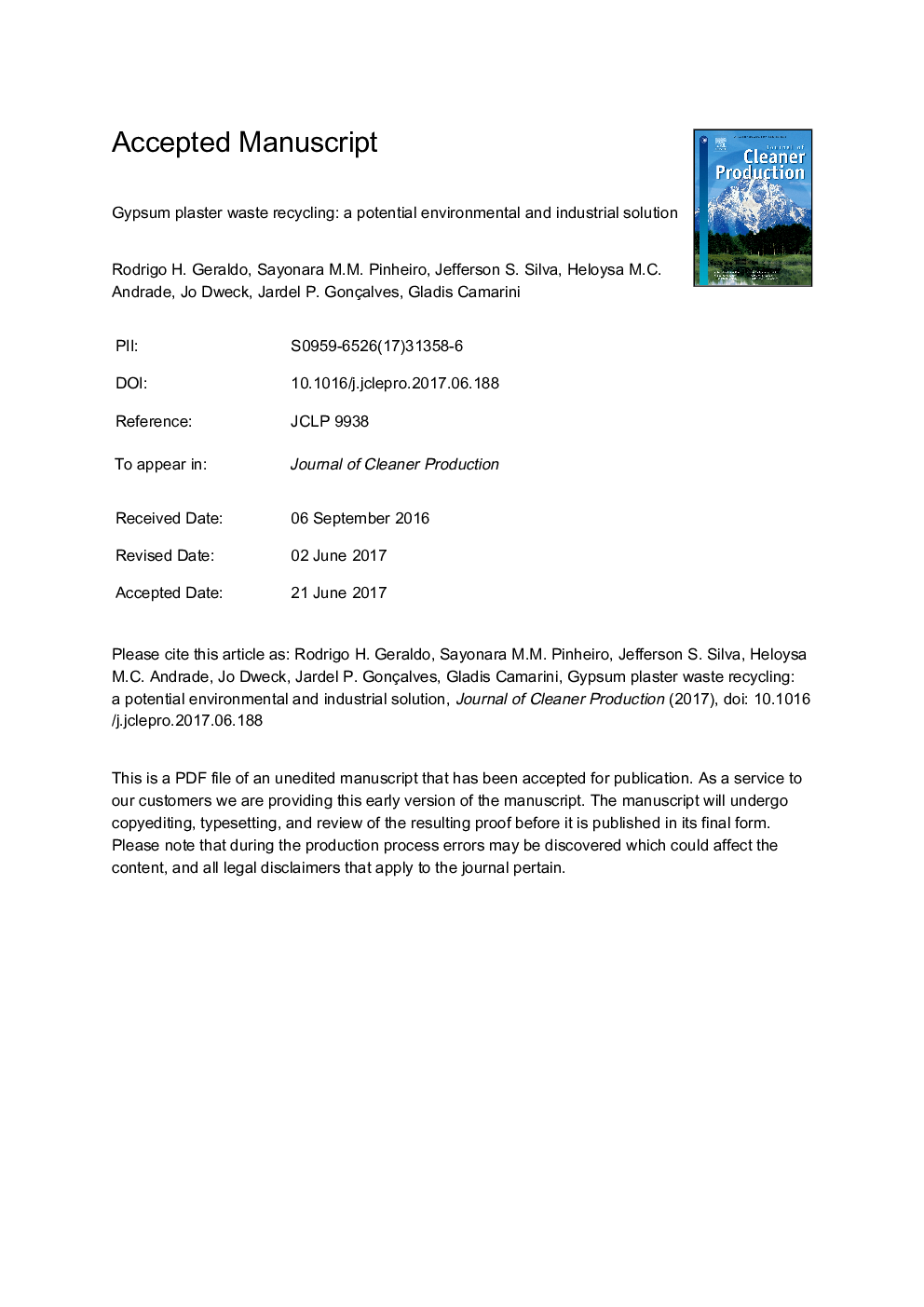| Article ID | Journal | Published Year | Pages | File Type |
|---|---|---|---|---|
| 5480445 | Journal of Cleaner Production | 2017 | 32 Pages |
Abstract
Gypsum plaster waste (GPW) represents a large fraction of the total construction and demolition wastes generated by society, which may contaminate the soil and water resources. Although previous studies have indicated the possibility of recycling GPW, it is not known so far, if the recycling process affects the rehydrated products and how many times the GPW can be recycled without changing its characteristics. The present paper evaluated the properties of recycled gypsum plasters produced from a GPW after 1, 3, and 5 recycling cycles, RGP-1, RGP-2, and RGP-3, respectively. The unhydrated and hydrated recycled products were characterized by EDX, XRD, DTA, TG, DTG, as well as by measuring the recycled plaster setting times and the mechanical properties of respective rehydrated products. The recycling process does not change the gypsum plaster chemical composition which is similar to the commercial gypsum plaster. Physical properties are changed: bulk density diminished, setting times were shorter due to the change in the grain size with the recycling process. The mechanical performance was good with similar results at longer ages. GPW recyclability has a great potential to be a successful industrial solution and it allows the production of new reusable products, with less negative environmental impacts.
Related Topics
Physical Sciences and Engineering
Energy
Renewable Energy, Sustainability and the Environment
Authors
Rodrigo H. Geraldo, Sayonara M.M. Pinheiro, Jefferson S. Silva, Heloysa M.C. Andrade, Jo Dweck, Jardel P. Gonçalves, Gladis Camarini,
